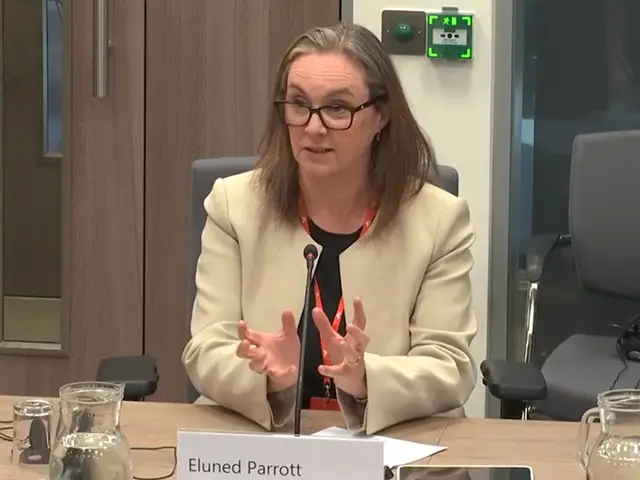PHYSICS education is at breaking point in Wales due to a lack of teachers, yet training bursaries are £14,000 higher across the border in England, a committee heard.
Eluned Parrott, head of Wales at the Institute of Physics, warned Wales had fewer physics-trained teachers (174) than secondary schools (205) in 2024.
She told the Senedd’s education committee no one measure is going to be a silver bullet but evidence shows teacher training incentives work.
“That’s why we’re calling on the Welsh Government to increase our physics teacher trainee bursary from £15,000 to match England’s £29,000,” she said.
“We need a bold reset to recruit, retain and retrain the next generation of physics specialists to help secure the future of physics in Welsh schools.”
Ms Parrott, a former politician, said only seven specialist physics teachers qualified through Wales’ initial teacher education (ITE) system from an intake of ten in 2023/24.
She said: “The intake allocation target was 67, meaning the intake fell 86% short…. The intake allocation target has since been increased to 72. It is unlikely to be reached.”
Warning of systemic challenges, Ms Parrott expressed concerns about investment in Welsh ITE compared with centres in other parts of the UK.
Contrasting the two, she told the committee: “You could go to study in an ITE centre that has a full-time professional and professorial level of ITE tuition or you could go to somewhere else where they’re struggling to recruit part-time tutors to help you.”
Ms Parrott, a former Liberal Democrat member of the then-Assembly, suggested setting up a centre of excellence for science, technology, engineering, and mathematics (Stem).
She explained: “It is important to have ITE centres spread out across the country but – rather than spreading that expertise – maybe create something that is robust, academically respected, driving improvements across ITE.”
Ms Parrott said: “I think there’s also an equity issue here with the bursaries and what that means because you cannot realistically live on the bursary that you would get in Wales.
“So, if you come from a less wealthy background, it is a major financial choice to take on another year of study and take on another year of student debt and another year of living a hand-to-mouth existence.”
She warned teacher shortages are far worse through the medium of Welsh – describing Welsh-speaking, physics-trained teachers as like unicorns.
Ms Parrott told Senedd Members: “Obviously, a lot of Welsh students do their undergraduate study in England. We need to be attracting them back because they’ve got, potentially, a Welsh-language skill that they are therefore not using.”

Annette Farrell warned Wales is “way off the mark” for chemistry too, with seven passing their postgraduate certificate in education (PGCE) in 2023/24 against a target of 67.
The Royal Society of Chemistry expert warned financial barriers are a big issue, with cross-border differences on incentives making training an unviable option for some.
“If you compare the English bursary system to Wales,” said Ms Farrell. “Once you’ve taken account of… fees and everything, Welsh students next year will only take home £2,465. If you compare that with England… that’s £19,465.”
She lamented the loss of Bangor’s chemistry provision, with only centres in Cardiff and Swansea, creating a “massive cold spot in the north”.
Ms Farrell emphasised the need to look at the financial sustainability of higher education more generally and address workload issues for teachers.
She raised concerns about possible unintended consequences from plans to scrap separate science GCSEs in favour of separate teaching but a double-award qualification.
Shabana Brightley, from the Royal Society of Biology, echoed her colleagues’ comments as the trio gave evidence on June 18 to a wider inquiry on teacher recruitment and retention.

“Based on the bursaries in England and all the incentives they get…they would rather go across the border to go and get trained,” she said.
Ms Brightly, a former primary and secondary school teacher, told the committee: “Early career support is very important, especially having subject-specific mentors in schools.”
She warned: “Let’s say a biology teacher is then having to teach physics and chemistry, which they’ve maybe not done since GCSE – that is a huge burden.”















